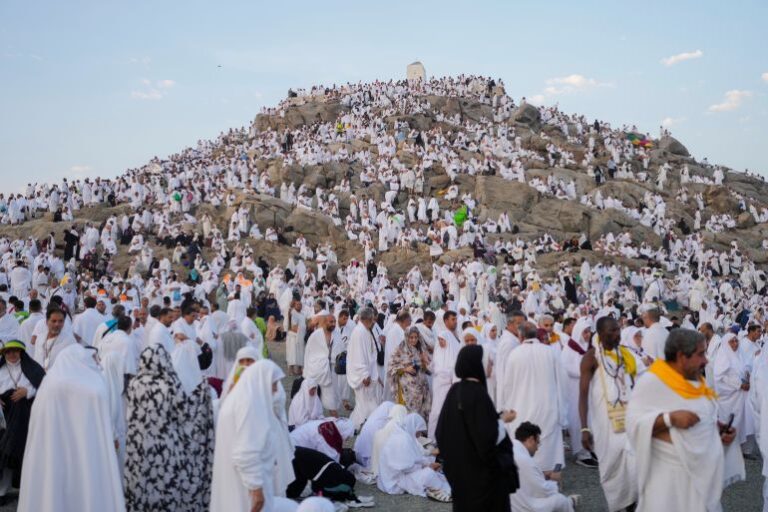The Day of Arafah is one of the most sacred days in the Islamic calendar. It falls on the 9th of Dhul Hijjah, the day before Eid al-Adha. It is a day that holds immense spiritual weight for both those performing Hajj and those who are not. For the pilgrims, it marks the pinnacle of the Hajj journey, and for others, it offers one of the greatest opportunities of the year to seek Allah’s mercy and forgiveness.
Arafah: The Heart of Hajj
Allah says in Quran:
“Then when you pour down from Arafat, remember Allah at the sacred place…”
Among all the sacred moments of Hajj, none is more significant than standing at Arafah. The Prophet Muhammad ﷺ said:
“Hajj is Arafah.”
(Musnad Ahmad)
This powerful statement captures the soul of the pilgrimage in just three words. Without standing at Arafah (known as Wuquf), Hajj is incomplete. It is the core of the journey — the defining moment.
On this day, millions of pilgrims gather on the vast plain of Arafah, dressed in humble white garments, standing as equals before their Lord. They raise their hands in heartfelt du’a, eyes filled with tears, hearts trembling with longing and submission. It’s not just about being present in a place — it’s about returning to Allah with sincerity, humility, and hope.
To stand at Arafah is to stand in the mercy of Allah. It is the largest spiritual gathering on Earth, where social status, wealth, and nationality disappear — and only sincerity remains.
The Significance for Non-Pilgrims
The blessings of the Day of Arafah are not limited to pilgrims. Muslims around the world can benefit greatly from this sacred day by engaging in acts of worship, especially fasting.
The Prophet ﷺ said:
“Fasting on the Day of Arafah, I hope from Allah, will expiate for the sins of the year before and the year after.”
(Sahih Muslim)
While pilgrims are not required to fast due to the physical demands of Hajj, non-pilgrims are strongly encouraged to fast from Fajr to Maghrib — gaining the reward of two years’ worth of forgiveness.
A Day of Du’a, Forgiveness, and Reflection
The Day of Arafah is described by the Prophet ﷺ as a day when:
“There is no day on which Allah frees more people from the Hellfire than the Day of Arafah. He comes close and expresses His pride to the angels saying, ‘What do these people want?’”
(Sahih Muslim)
The Prophet ﷺ also said:
“The best du’a is the du’a of Arafah, and the best that I and the Prophets before me have said is:
‘Lā ilāha illallāh waḥdahū lā sharīka lah, lahu-l-mulku wa lahu-l-ḥamdu, wa huwa ‘alā kulli shay’in qadīr.’”
(Tirmidhi)
It is a day when Allah draws near, listens to the cries of His servants, and forgives in abundance. It is a time for:
- Sincere du’a (supplication)
- Deep istighfar (seeking forgiveness)
- Constant dhikr (remembrance of Allah)
- Qur’an recitation and reflection


